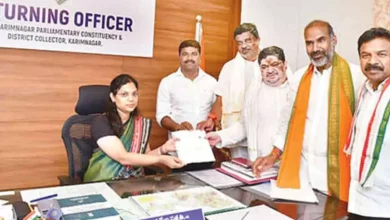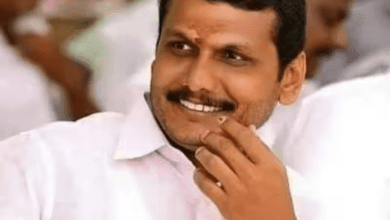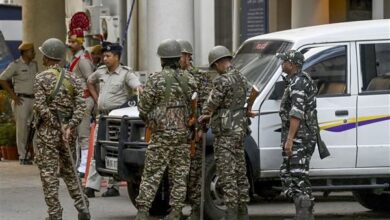Chief Justice: J&K Didn’t Lose Sovereignty Upon Joining the Union of India
New Delhi: The Supreme Court rendered its ruling today in a much-awaited case with potentially significant ramifications: the validity of the Center’s 2019 decision to withdraw Article 370 of the Constitution, which gave Jammu and Kashmir special status.

The following are the top five quotes from the current hearing:
The Supreme Court maintains that Jammu and Kashmir’s removal of Article 370 is lawful. The President of India’s ruling on the existence of the unique circumstances under Article 370 cannot be appealed to the Supreme Court. History demonstrates that there was no progressive constitutional integration process. It was not as if the Indian Constitution had been imposed all at once after seventy years. It marked the end of the process of integration.
We order that the Union Territory of Jammu and Kashmir be returned to its former status as soon as possible.
We give the Election Commission instructions to hold the Jammu and Kashmir Assembly elections by September 30, 2024.
We have ruled that Article 370(1)(d) permits the application of all provisions of the Indian Constitution to Jammu and Kashmir at once. We do not believe that the Presidential authority used to issue CO 273 was improperly used. As a result, we uphold the legitimacy of the President’s use of authority.
It was not necessary to adhere to the idea of consultation and participation in order to execute presidential authority. Article 370(1) did not need the state government’s concurrence in order to implement all of the Constitution’s provisions (d). Therefore, it was not dishonest for the President to accept the Union Government’s approval.
According to our ruling, Article 370 is a transient clause. The state was in a state of war, therefore Article 370 was a temporary solution.
Jammu and Kashmir’s internal sovereignty is the same as that of other states. We have not held any views on whether Jammu and Kashmir maintained any internal sovereignty after it joined the Union of India.
The mention of sovereignty is conspicuously absent from the Jammu and Kashmir Constitution. Articles 1 and 370 of the Indian Constitution make it clear that the State of Jammu and Kashmir became an essential component of India.
Since the petitioners did not directly contest the Presidential rule that was established in Jammu and Kashmir in December 2018, the Supreme Court declined to pronounce its legitimacy.
The Center makes a great deal of choices after an Article 356 declaration is in effect. Not all actions are subject to dispute.







